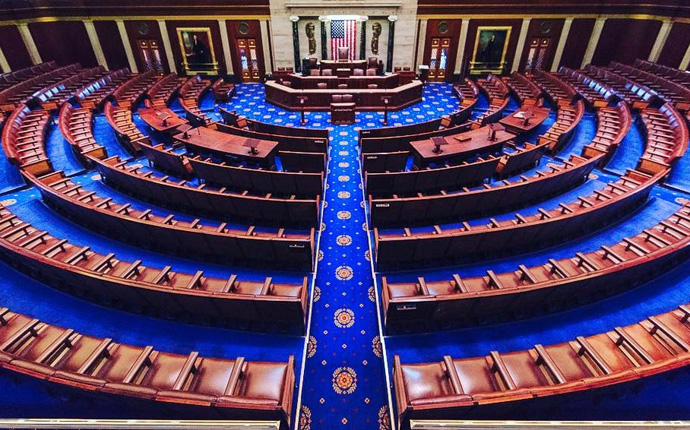Press Releases
Report: House Republicans Voting to Block Administration Credit Card Rule Took Nearly $8M From Pro-$41-Late Fee Industry Groups

WASHINGTON, D.C. – On Wednesday, the House Financial Services Committee (HFSC) is expected to vote on House Joint Resolution 122, a Congressional Review Act resolution introduced by U.S. Rep. Andy Barr (R-KY-06) to block the Consumer Financial Protection Bureau’s final credit card late fee rule capping most credit card late fees at $8, down from an average of $32. A new analysis from government watchdog Accountable.US found HFSC Republicans moving to block the rule have taken over $7.9 million from the largest credit issuers and industry groups opposed to the rule.
Despite industry spin, the CFPB’s exceptionally popular rule would save millions of Americans $220 per year on average, a total surpassing $10 billion across the nation annually, and would be a significant step towards alleviating crushing credit card debt plaguing American families. These Republicans’ efforts come even as new polling showing more than four in five Americans want Congress to support capping credit card late fees.
A vote for Rep. Barr’s resolution is a vote to let big banks keep shaking down everyday families with predatory late fees as high as $41. Voting yes means obstructing the Biden administration’s latest commonsense action to lower costs for Americans struggling to get ahead. Instead, the Committee should put consumers poised to save billions before their industry megadonors. Big bank CEOs that boast of billion-dollar profits after nickel and diming Americans with junk fees don’t need more special treatment from the MAGA Congress.”
Accountable.US’ Liz Zelnick
In Rep. Barr’s home state of Kentucky alone, consumers’ average credit card balances increased 8.4% to $5,304 from 2022 to 2023. Yet Rep. Barr is pressing forward with his resolution to stop the Biden administration from lowering costs after taking over $700,000 from industry trade groups opposed to the credit card late fee rule and the eight largest U.S. credit card issuers.
A Vote For Barr’s Resolution Is a Vote to Punish Consumers, Further Enrich Big Banks: In February 2024, the Federal Reserve Bank of New York released data showing that Americans’ credit card balances reached a “new record high of $1.13 trillion” in Q4 2023 and that the number of late credit card payments and delinquencies were growing. In 2019, nearly 60% of the $23.6 billion that card issuers charged consumers were from late fees, and in 2022, late fees returned to pre-pandemic levels at $14.5 billion. According to a January 2024 Bankrate survey, 49% of American credit cardholders are carrying debt from month to month, while 39% of Americans said credit card debt was their biggest barrier to building wealth in 2023.
###
